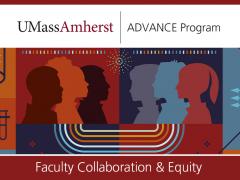Jin-Woo Kim, a professor of biological and agricultural engineering, was recently made a member of the Institute of Electrical and Electronics Engineers.
Jin-Woo Kim, a professor and researcher at the Arkansas Agricultural Experiment Station, was inducted as a member of the Institute of Electrical and Electronic Engineers on January 1 for his contributions to nanotechnology.
A professor of biological and agricultural engineering for the Experiment Station, the research arm of the U of A Systems of Agriculture Division and the U of A College of Engineering, Kim has devoted much of his his career developing advanced nanoparticle systems into practical tools for medical, agricultural and manufacturing uses.
The IEEE elevated Kim to IEEE Fellowship for his contributions to the nanoscale fabrication of bio/nano-hybrid materials. The IEEE is a professional organization for the advancement of technology with more than 400,000 members in more than 160 countries. Only about 5,000 members have been appointed as IEEE Fellows. Kim was among 311 senior members who were awarded this honor in 2022.
“We congratulate Dr. Kim on his induction into IEEE Fellowship,” said Jean-Francois Meullenet, senior associate vice president for agricultural research and director of the Arkansas Agricultural Experiment Station. “We know this is a very special honor for him and great recognition for his groundbreaking work in the field of nanoscience. Well deserved.”
“It’s a prestigious honor and a significant professional achievement,” said Lalit Verma, head of the Department of Biological and Agricultural Engineering. “Dr. Kim’s research and development work and innovative technology will improve economic well-being and quality of life in Arkansas and around the world.”
Kim’s contributions to nanotechnology helped develop a method to treat cancer in collaboration with the U of A for Medical Sciences.
“I have always found him an innovative and deep thinker and someone with a special ability to think across disciplines as he collaborates on exciting work related to our interests in cancer detection and cancer delivery. drugs,” said Robert J. Griffin, Ph.D., of the UAMS Department of Orthopedic Surgery. “His work on DNA-based nanoparticles was particularly fascinating because he was able to ingeniously use the natural properties of DNA to create multifunctional nanomaterials with exciting potential.”
Verma said Kim’s work with nanoparticles has the potential to transform many fields of research, ranging from optoelectronics, nanophotonics and nanomedicine to agriculture, food safety and biosecurity. Kim has developed innovative technology to guide the self-assembly of nanoparticles into specific shapes and functions that he calls “nano-toolbox technology.” He has also used technology to study the applications of nanocellulose created from wood industry waste.
Kim is co-founder and member of the Scientific Advisory Board of CelluDot LLC, a Fayetteville startup that works to turn nanocellulose into materials that can be used for a variety of purposes, including agricultural adjuvants, medical diagnostics, smart fabrics,… packaging materials and filters.
“Perhaps the highest form of recognition is that received from your peers,” said Kim LaScola Needy, dean of the College of Engineering and professor of industrial engineering. “IEEE Fellowship is extremely competitive and reserved for those who have significantly advanced their profession. I am delighted to see that Dr. Kim has received this well-deserved recognition for his important work.”
Steve Tung, professor and graduate studies coordinator in the Department of Mechanical Engineering, also congratulated Kim on the award.
“Over the past two decades, he has contributed greatly to our understanding of bio-nanotechnology and has also played a leading role in his service for the IEEE Nanotechnology Board,” Tung said.
Kim has been an IEEE Fellow since 1998, while pursuing his doctorate in biological and agricultural engineering at Texas A&M University. He has served as Director of the Bio/Nano Technology Group at the U of A since 2001 and has held many key leadership positions within IEEE over the years, including Vice President of Publications and Vice President of Conferences of the IEEE Nanotechnology Council, as well as co-editor of the IEEE Open Journal of Nanotechnology, IEEE’s fast, open-access journal.
“I’m humbled and grateful for the recognition,” Kim said. “It’s truly amazing to have my work recognized, but it wouldn’t have been possible without the support and motivation of so many people throughout my career – I’m grateful to all of them!”
“The IEEE Fellow is one of IEEE’s most prestigious honors and is awarded to a very limited number of senior members who have made significant contributions to the advancement or application of engineering, science and technology that brings significant value to our society,” said Susan K. Land, outgoing president and CEO of the IEEE.
To learn more about Agriculture Division research, visit the Arkansas Agricultural Experiment Station website: https://aaes.uada.edu/. Follow us on Twitter at @ArkAgResearch.
About the Agriculture Division: The mission of the University of Arkansas Division of Agriculture System is to strengthen agriculture, communities, and families by connecting trusted research with the adoption of best practices. Through the Agricultural Experiment Station and the Cooperative Extension Service, the Division of Agriculture conducts research and extension work within the country’s historic land grant education system. The Division of Agriculture is one of 20 entities in the University of Arkansas system. It has offices in all 75 counties of Arkansas and faculty at five system campuses. The Agricultural System Division of the University of Arkansas offers all of its extension and research programs and services without regard to race, color, sex, gender identity, sexual orientation, national origin , religion, age, disability, marital or veteran status, genetic information, or other legally protected status, and is an Affirmative Action/Equal Opportunity Employer.
 Xing Wu
Xing Wu



